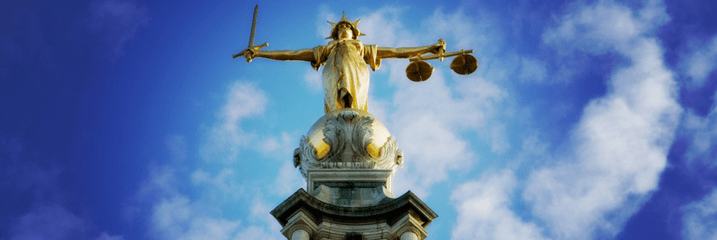As legal professionals, it is easy to get caught up in the whirlwind of day-to-day practice. There’s always a trial to prepare for, a contract to negotiate, or an executive compensation package to draft. With the flurry of activity, it’s hard to find time to reflect upon the history and origins of our profession.
History, however, is important, so today we’ve explored some of our more time-honored legal traditions, including how and when they came about. Grab a cup of coffee and take a moment to take a peek into the past with us.
#1 Testimony under oath
In almost any formal proceeding, witnesses are required to testify under oath. In other words, the witness swears “to tell the truth, the whole truth, and nothing but the truth.” Some believe the oath originated in ancient Rome, where men “held their own testicles as a sign of truthfulness while bearing witness in a public forum.” Indeed, this practice was long believed to the be origin of the word testify.
Modern scholars, however, believe that the word testify more accurately refers to the ancient Greek term for the number three, with the witness being “a third observer of events.” Regardless, the requirement of truthful testimony in English law was thought to originate in the 16th century, where there was heavy reliance on God’s vengeance to influence witness veracity.
Today, of course, we rely on the codified “penalty of perjury” to ensure truthfulness. Given that perjury convictions can equate to up to five years in prison, the modern oath is plenty effective.
#2 Trial by jury
The concept of a trial by jury is so engrained in American culture that few stop to question where the concept originated. Scholars believe that the practice of assembling a group of laypeople to fact find began prior to the Norman conquest of 1066. Back then, the group was referred to as an “inquest” and was sometimes made up of 12 knights.
Interestingly, jury trials replaced other more arcane methods of fact finding, such as using water or fire to determine the outcome of cases. These methods were known as “trials by ordeal,” where judges or priests would apply some painful force to a defendant while waiting for God to give a sign that would prove guilt or innocence. Although these practices were used intermittently through Colonial times, Pope Innocent III officially prohibited them in 1215.
#3 Due process of law
1215 was also the year the English Magna Carta was issued. That seminal document contained a provision stating that no free person could lose certain rights except “by the judgment of his peers and the law of the land.” The phrase “law of the land” was later replaced in Parliamentary codes with “due process of law.” This provision was believed to ensure that the deprivation of a person’s rights could only result from written laws – and not from arbitrary decisions by the King.
English colonists who traveled to the New World relied heavily on the Magna Carta and other English legal traditions in shaping American law. “Due process of law,” of course, remains a paramount principle of American law to this day.
#4 Lawyers
Perhaps the most fundamental practice that we take for granted is the very existence of attorneys. Although it is hard to believe today, the practice of lawyering did not originate until after organized laws were in place.
In fact, in ancient Greece, individuals were expected to defend themselves in legal proceedings. Eventually, however, a practice developed whereby a defendant could request to have a friend advocate on his behalf. Sometime in the mid-fourth century, the request became unnecessary and an industry of “great speakers” developed. These orators are thought to be the first attorneys.
Many of you may be surprised to learn that those early “lawyers” were prohibited from accepting fees. It makes you wonder whether the U.S. would have over 1.3 million attorneys if that practice had remained in place.
Understanding the origins of legal history can give perspective and meaning to the policies and practices we adhere to each day. It can also remind us why we advocate so ferociously on behalf of our clients and can make us appreciate the great minds that developed the principles we rely on.
Which historical legal practices do you believe are integral to our modern profession? Which do you see as being outdated? Share your thoughts in the comments!









